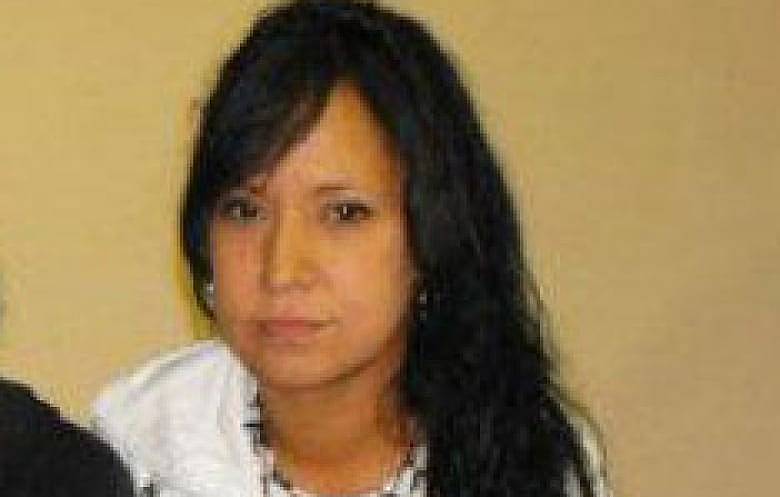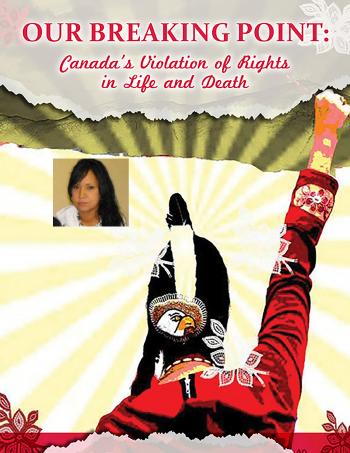Image Caption
Summary

Cindy Gladue
Counsel for the man found not guilty of murder in the death of Cindy Gladue will be arguing before the Supreme Court of Canada on Thursday Oct. 11 that the Alberta Court of Appeal erred by allowing new arguments from interveners that said the continued use of the words “Native” and “prostitute” to describe the victim prejudicially influenced the jury, which thereby formed false assumptions and made decisions based on racial bias.
“Interveners are supposed to bring unique perspectives to the court,” said Julie Kaye, researcher for the Institute for the Advancement of Aboriginal Women (IAAW).
IAAW joined with the Women's Legal Education and Action Fund (LEAF) to make their arguments to the Alberta Court of Appeal. Those arguments, which were not presented by the Crown, will also be made to the Supreme Court. There will also be assertions that trial judge Justice Robert Graesser made “significant errors in admitting Cindy Gladue’s sexual history” and his “improper way” of handling consent, said Kaye.
These were issues that figured prominently in a damning 91-page finding by the Alberta Court of Appeal to overturn a not-guilty verdict rendered by a jury in the lower court and to call for a new trial.
In early 2015, Bradley Barton, a truck driver from Ontario, stood trial in Edmonton in the death of Gladue, a 36-year-old Métis woman. Her body was found in the Yellowhead Inn hotel in Edmonton in June 2011. Barton testified that he had paid her for sex for two days. It is what happened the second day which resulted in Gladue’s death that was the focus of the four-week trial. The jury found Barton not guilty of murder in March 2015.
The Alberta Court of Appeal three judge-panel chaired by Chief Justice Catherine Fraser found that the jury couldn’t even convict on manslaughter, because of “erroneous instructions” provided by Judge Graesser on Barton’s conduct and motive.
While the Appeals Court came down hardest on Graesser because it was his courtroom and he was ultimately in charge, the defense and the Crown were also called out for having erred in a number of areas.
The system failed Gladue in both life and death, said Kaye.
“The trial itself dehumanized her in so many different ways,” she said. “She died a very violent death, and in the court’s response to that, through a colonial legal system, her death was violently addressed by the court itself.”
Kaye points out that there are documented cases – including the treatment of Angela Cardinal, and the Gerald Stanley ruling in the Colten Boushie death– that show that the legal system continues to perpetuate discrimination against Indigenous peoples.
IAAW and LEAF, which were the only organizations to have had intervener status with the Alberta Court of Appeal, are one (joint submission) of 16 organizations granted intervener status for the Supreme Court proceedings.
The National Inquiry into Murdered and Missing Indigenous Women and Girls is one of those organizations and “will focus arguments on the over-representation of Indigenous women as victims and judicial notice of the systemic harms experienced by Indigenous women and girls,” it stated in a news release.
Other interveners include attorney generals of Canada, Ontario and Manitoba; rape and sexual assault organizations; criminal and lawyer associations; Indigenous women organizations; and the Asian Women for Equality Society.
The number of interveners as well as their status is a clear indication as to how important this case is, sais Kaye.
It’s an opportunity for the Supreme Court to take further action on established laws, as well as how juries are instructed, a point on which the Alberta Court of Appeal was strongly critical.
“The eyes of the nation are really on it,” said Kaye. “It really is a case where the justice system as a whole is coming under a lot of scrutiny.”
Kaye points out that IAAW President Muriel Stanley Venne, who will be in Ottawa for the hearing, says this is the most important case in her lifetime. She is 80 years old.
“That statement really reflects what’s at stake in this. In addition to the person of Cindy Gladue, the horrific dehumanization of her within the court, it also is a case that really holds to account the way the criminal justice system in Canada has continued with systemic forms of discrimination,” said Kaye.
The Supreme Court of Canada will begin hearing the case tomorrow morning at 10 a.m. EST.
While Kaye won’t presume to know what the Supreme Court will decide, she believes it will become quickly apparent in the “line of questioning” as the justices have already had the opportunity to study the written legal factums.
Kaye anticipates it will take six to nine months for the Supreme Court to render its decision.
She adds that depending on what happens with the Supreme Court, “other accountability measures” may be looked at in addressing Graesser’s approach to the trial. Those measures may be similar to what happened with Federal Court Justice Robin Camp, whose comments during a sexual assault trial resulted in a Canadian Judicial Council hearing and recommendation he be removed from the bench.

